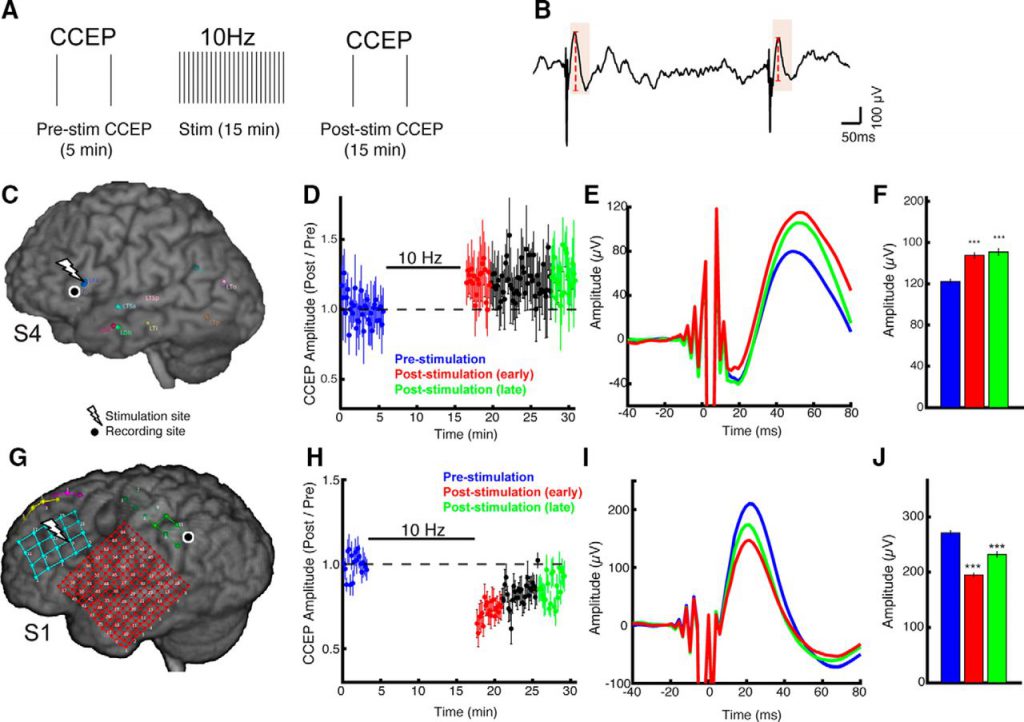A study of epilepsy patients with transplanted electrodes has seen a change in brain activity caused by an electrical stimulus that has never been seen before. These findings were recently published in J Neurosci and have the potential to improve non-invasive stimulation for the treatment of psychiatric diseases.

Repetitive transcranial magnetic stimulation (rTMS) has been increasingly used for the treatment of patients with depression and other poor reactions to drugs or psychotherapy. Although the effects of this stimulus on the motor cortex have been tested in animals and humans, its effects on other areas of the brain are still unclear, including the prefrontal cortex, the target of rTMS treatment for depression.
Corey Keller, together with his colleagues, performed rTMS stimulation of the prefrontal cortex in four epileptic patients transplanted with brain electrodes to control the condition. This allows them to study the neural activity in specific areas with higher resolution, which is not achievable with any non-invasive brain stimulation and imaging. By comparing the brain’s stress before and after rTMS treatment, the researchers found that they can accurately predict which parts of the brain are affected by the stimulus. This study can help develop personalized brain stimulation methods.
Reference
Corey J. Keller et al. Induction and quantification of excitability changes in human cortical networks, JNeurosci (2018). DOI: 10.1523/JNEUROSCI.1088-17.2018